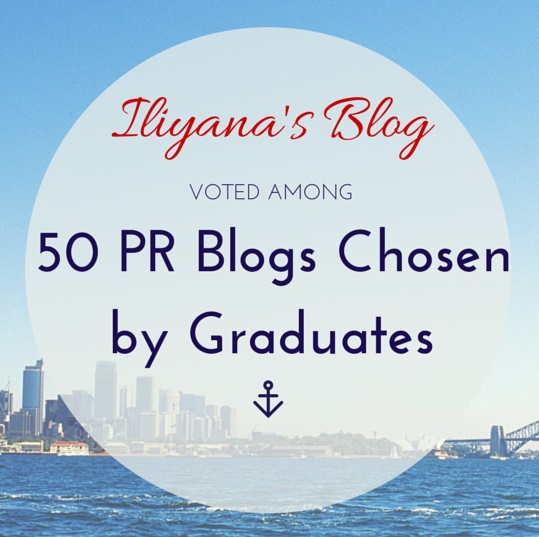When I was writing my dissertation a few months ago I had to spend a lot of the time by the library shelves of endless PR textbooks, where I also came across a book called ‘Publicity, Newsletters and Press Releases’ by Alison Baverstock that grabbed my attention. As a beginner in the field of writing I thought it was quite helpful because it was easy to comprehend, short, but also provided plenty of explanations, examples and practical advice.
months ago I had to spend a lot of the time by the library shelves of endless PR textbooks, where I also came across a book called ‘Publicity, Newsletters and Press Releases’ by Alison Baverstock that grabbed my attention. As a beginner in the field of writing I thought it was quite helpful because it was easy to comprehend, short, but also provided plenty of explanations, examples and practical advice.
Below you can find 8 tips I found particularly important that the author suggests for improving your promotional writing, specifically about how to put your text together, i.e. the ultimate words choice. The final tip is a bonus from me :)
Tip 1: Forget about the ‘me’, talk about the ‘you’
The author explains that “effective writing starts with thinking about who will be reading what you say. Customers are far more interested in their own needs and problems than your organisation’s achievements.” She suggests an easy way of evaluating how focused your copy is by counting the number of first- and second-person pronouns in your writing – the number of I/we to the number of you.
Tip 2: Pay attention to the ‘isms’ of your target market
The focal point here is knowing your target audience and being sensitive about issues such as sexism, racism, ageism etc. A writer needs to understand such sensitivities that particularly affect the ones you are writing to and how to reflect these in the vocabulary you are using. Therefore, do your research beforehand and get to know your audience well.
Tip 3: Use easy to understand words
The shorter the words, the clearer the message is. The same applies for sentences and for avoiding long phrases where a single word would do – use for example ‘most’ instead of ‘a great deal’. As Thomas Jefferson once said: “The most valuable of our talents is that of never using two words where one will do.”
Tip 4: Use interesting words
The idea here is not to be predictable, but to rather ‘exceed expectations’. This is quite reasonable, of course, because if a reader can guess what your message would be, he/she might as well not bother reading your text. For example: use ‘huge’ instead of ‘major’ or ‘tragic’ instead of ‘sad’.
Tip 5: Avoid hackneyed words
As language changes over time, so do words too either through new developments or overuse. Therefore, be careful with the choice of words and try to avoid such that are being used too often in the specific sector of society (your target audience) and so lose their impact. Examples are: useful or unique.
Tip 6: Be careful about the number of adjectives
A noun doesn’t always need two adjectives. Often just one would suffice, but depending on your message you might need three or maybe even none. Don’t follow the rule of always having two adjectives as encouraged at school.
Tip 7: Avoid jargon
The author defines jargon as ‘in-house talk’ that includes words that mean something to those involved in an area, but nothing to those outside of it. If you do use such terms a part of your target market may not understand your message at all. Therefore, try to ‘talk’ to your audience in an easily comprehensible language.
Tip 8: Be careful about words that sound alike or are similar
There are quite a few commonly confused misinterpretations or misspellings such as affect/effect or principal/principle. If you are unsure which one is correct (very much the case of non-native speakers) use a dictionary to check how a word is spelled and its meaning. Don’t always trust the automatic spell-checking by Word or any other programmes.
Tip 9: Always proofread
What happens most of the time is that straight after having written something you miss some small spelling or grammar mistakes when you proofread because in your head everything sounds perfect. The best thing would be to get away from the text for a while (a few hours or better yet a whole day) and then read it aloud. Once you’ve checked it on your own it’s also advisable to give it to someone else to go through it.
Don’t forget that “words are, of course, the most powerful drug used by mankind” (Rudyard Kipling). Therefore, choose them wisely if you want your promotional writing to be effective.
What is your advice of how to choose the right words for promotional writing?






